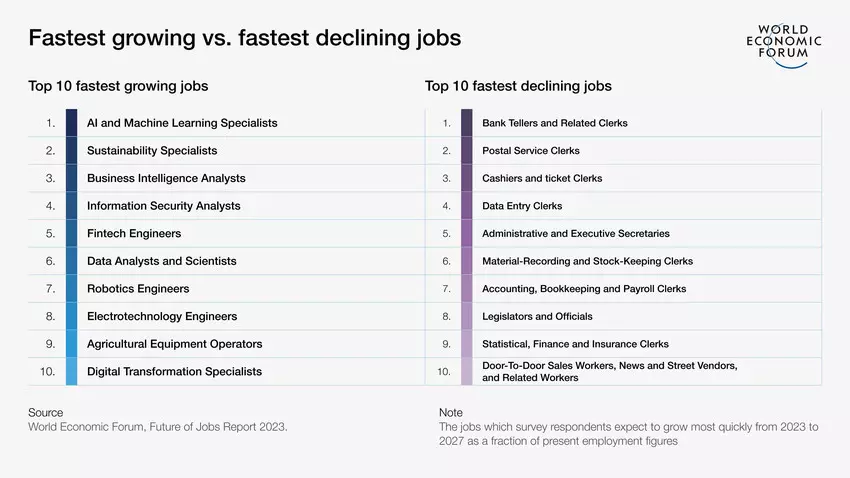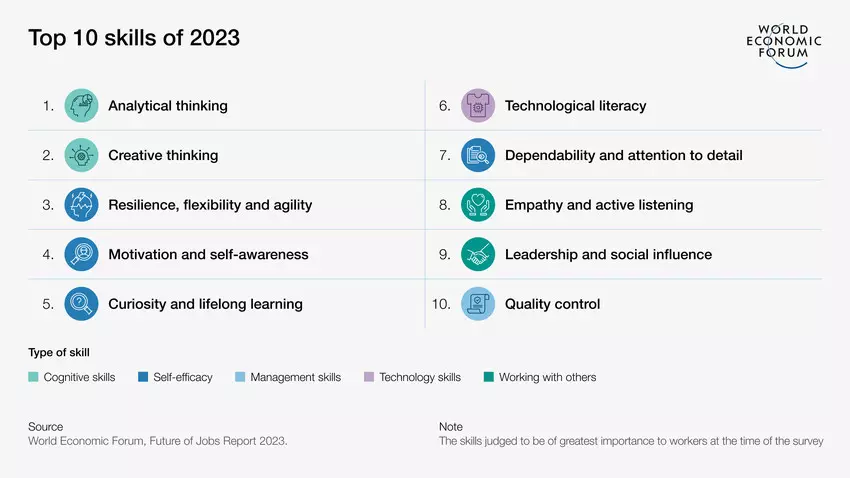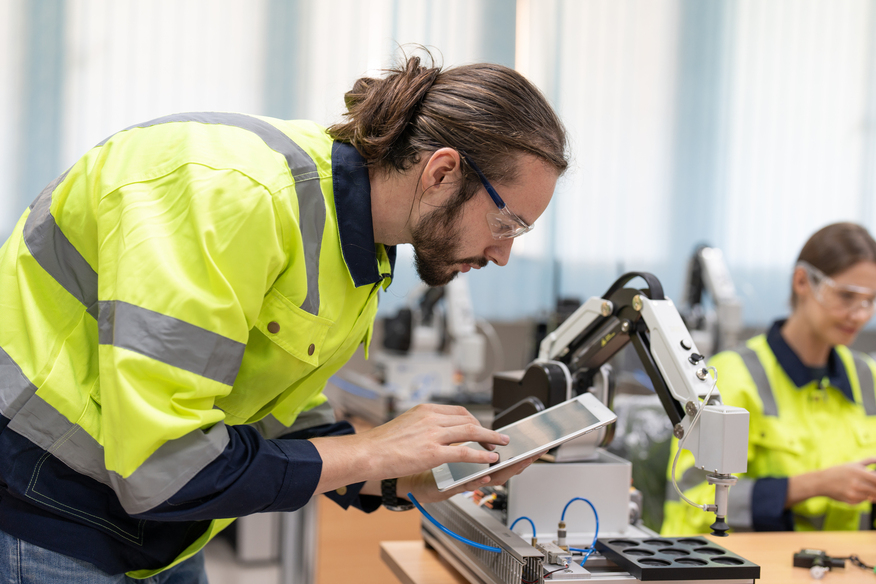With artificial intelligence becoming part of the daily lexicon of more people every day, it’s no surprise that the technology is expected to shake-up the jobs market in an unprecedented way.
In its fourth edition of the Future of Jobs, the World Economic Forum explores how jobs and skills are expected to evolve over the next five years and conducts an analysis of employer expectations to provide new insights on how socio-economic and technology trends will mould the workplace.
The report’s findings are based on a survey of 803 companies which employ 11.3 million workers across 45 countries.
Jobs related to AI are expected to be the fastest growing over the next five years, with AI and machine learning specialists taking the top spot.
Generative AI tools such as ChatGPT and the growing number of workplaces integrating them into their regular workflows have led to speculation that such tools risk will to people losing their jobs.
As with any new technology entering the mainstream, certain jobs inevitably become obsolete, however, it generally leads to the creation of new jobs.
Other fast-growing jobs include sustainability specialists, business intelligence analysis, information security analysts and fintech engineers.

Meanwhile, the fastest declining jobs are bank tellers and related clerks, followed by postal service clerks, cashiers and data entry clerks.
This indicates that there’s a growing demand for more specialised skills, whereas more monotonous activities will continue to be phased out through the adoption of new tech.
This means that employers need to either retrain their staff, or seek out new talent with specialised skills, and here there’s an issue. The study found investing in learning, on-the-job training, and automating processes to be the most common workforce strategies which companies are adopting.
Overall, employers estimate that 44 per cent of workers’ skills will be disrupted in the next five years.
Employers confident in being able to develop their own existing workforce but are more pessimistic about finding talent elsewhere to close their skills gap.
Furthermore, it is cognitive skills which are growing in importance most rapidly, which include creative, analytical, and critical thinking. This reflects the increasing demand for complex problem-solving capabilities which require outside-the-box thinking.

Echoing back to AI and automation, today firms expect 42 per cent of business tasks to be automated by 2027, which is an increase of only eight per cent from today. Yet, AI is expected to be adopted by nearly 75 per cent of surveyed companies, with 50 per cent of companies expecting it to lead to job growth while another 25 per cent expecting it to lead to job losses.
Malta flights to Bergamo suspended following fatal incident
An incident resulted in the cancellation of several other flights, with some flights being redirected to nearby airport
Malta’s business economy grows by 15.6% in 2023
While large enterprises continue to play a leading role, SMEs and micro-businesses remain vital pillars of the economy
MFSA and Central Bank warn of loan and email scams
Both institutions urged the public to report suspicious activity and avoid sharing personal data with unverified sources






